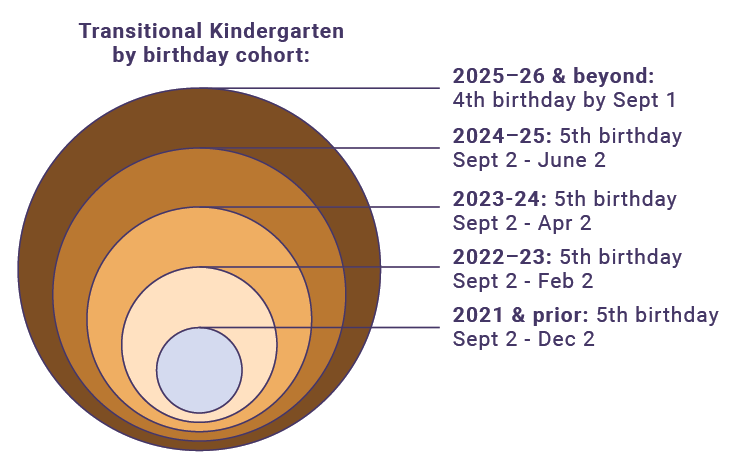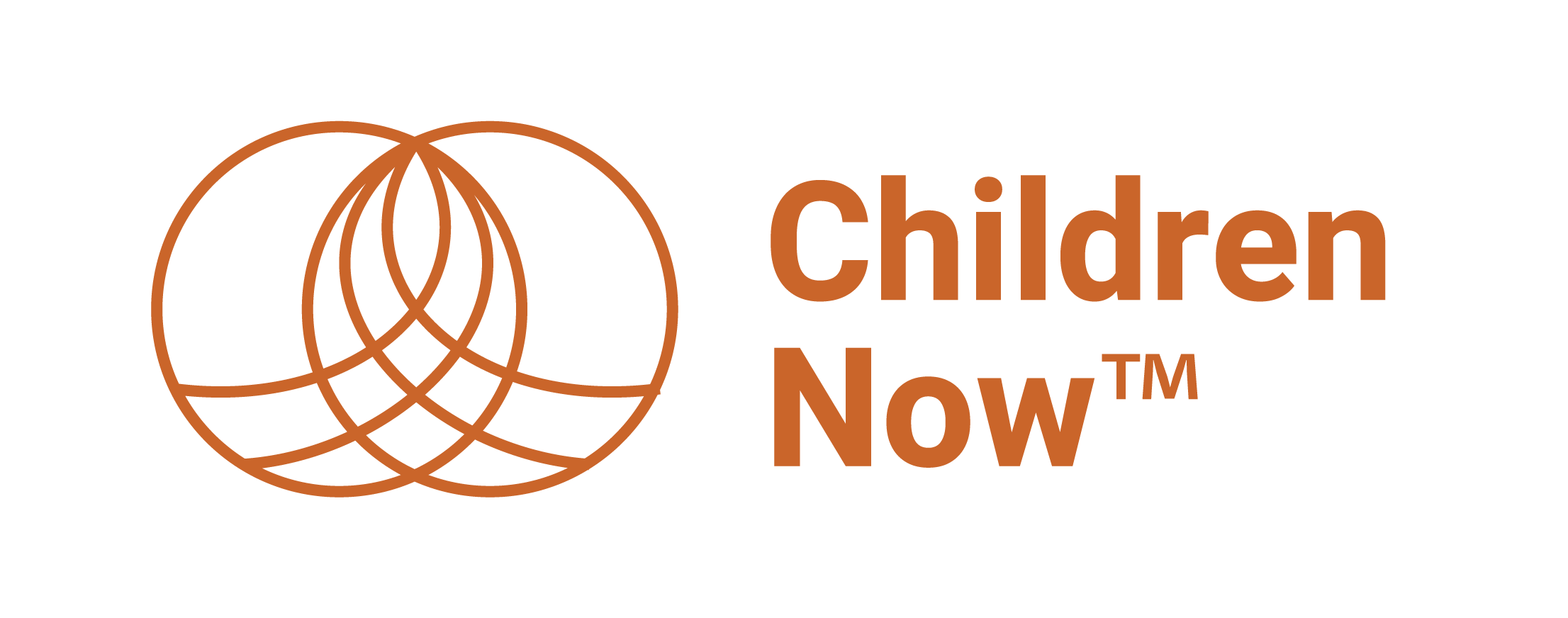What you need to know about the expansion of this early learning program
By Children Now Education Policy Team
September 7, 2022
Top image via iStock from FatCamera
California’s Transitional Kindergarten (TK) program gives thousands of four-year-old kids access to early learning opportunities. The program will begin expansion at the start of the 2022/2023 school year.
What is Transitional Kindergarten?
Transitional Kindergarten is the first year of a two-year kindergarten program. It was created in response to the demand for access to early public education, after the State moved the start date for kindergarten enrollment in 2010. With its establishment, children born between September 2 and December 2 who were no longer eligible for kindergarten, would instead be eligible for Transitional Kindergarten.
California modified Transitional Kindergarten to make it a universal program by allowing for the enrollment of all 4-year-olds by 2025/2026. This gives thousands of parent’s access to early education at no charge for their 4-year-old children.
Who is eligible? When are they eligible?
The graphic shows the pace of eligibility growth over the next four years, which is based on a child’s birthday.

Can a district expand access to all 4-year-olds now?
Yes and no. Currently, districts may, but are not required to, enroll children who are not yet eligible based on their birthday. This rule lasts until TK is fully funded and implemented in the 2025/26 school year. Once implemented, funding will support and allow children who turn 4 by September 1 to enroll in TK. Whether a district enrolls kids in TK programs before their birthday eligibility is a local, district-level decision.
How do families access Transitional Kindergarten?
Families interested in enrolling their children in TK should contact their local school district, charter school, and/or neighborhood elementary school. Most districts have TK enrollment information available on their websites and enrollment typically occurs in the winter (for the next academic year). Families are encouraged to contact their respective districts as soon as possible to see if they are still accepting TK enrollments.
Do children have to participate?
No, children are not legally required to attend Transitional Kindergarten. However, while children are not required to attend, there are great benefits to participating in high-quality, early learning programs. Decades of research show kids who participate in high-quality, early learning programs before the age of five, enter kindergarten better prepared, and have improved academic and economic outcomes over the course of their lifetime.
Can a child still enroll in state funded preschool or a Head Start program if they are eligible?
Yes! Families who meet the eligibility requirements for California State Preschool Programs (CSPP) or Head Start may enroll their TK-eligible child in those programs if that is their preference. CSPP differs from TK by offering more days of school, and full-day programs, that equate to a full day of care. TK programs range from three and a half to six hours per day – before and after school care may or may not be available. Head Start offers additional wrap-around services and family supports that TK does not.
How many teachers and teacher’s aides will need to be hired statewide to meet the demand?
Estimates vary slightly. At full implementation in 2025/2026, it is expected that as many as 11,000 – 14,000 teachers and twice as many teacher’s aides will be needed to fully staff TK classrooms.
Do teachers and teacher’s aides need to have specialized experience/credentials to work in TK?
Current teachers holding a multiple subject credential must have 24 Early Childhood Units or Child Development Permit by the 2023/24 school year to teach TK. In addition, the Commission on Teacher Credentialing (CTC) is developing a Preschool – Grade 3 (PK-3) Early Childhood Specialist Credential, which will authorize the holder to be the lead teacher in preschool through 3rd grade classrooms. Teacher preparation programs for this credential may be available as soon as next spring. This year, while the credentialing programs are developed, school districts can hire early education teachers who have bachelor’s degrees and at least 24 Early Childhood/Child Development units.
Currently, state law has minimal requirements for teacher aides in a TK classroom; these requirements differ between Title 1 schools and non-Title 1 schools. (Title 1 is a federal education designation determined by the number of students who qualify for free or reduced lunch.) Both types of schools require the individual to have a high school diploma or equivalent and pass an assessment measuring knowledge and skills in assisting instruction. Each district determines which assessment to administer. Those working in a Title 1 school must also have two years of college (48 units) or an A.A. degree.
Are districts required to offer TK?
A school district or county office that offers a kindergarten program will be required to offer TK for eligible children. However not every school site within a district is required to offer TK.
What are key considerations as the State continues TK roll-out?
As the State progresses towards universal eligibility for Transitional Kindergarten, it must address the impact that expanding eligibility will have on California’s early learning and child care system.
Research and experience from other states who have implemented similar expansions of universal early education clearly demonstrate the impact that eligibility expansion can have as well as options for mitigating the impact. These options include establishing an age 0 to 3 credential, scholarships, and free teacher credential training programs for those currently serving young children and allowing for universal early education from schools and private providers operating out of centers and family homes.
Requirements for a second adult in a TK classroom are also critical for successful implementation. The State must change the minimum requirements to require training and education in early childhood development.
Finally, California must carefully monitor expansion of TK to ensure all families have access to this universal program. The State must devise accountability metrics to measure program effectiveness and maintain the potential for this historic investment in early learning.
Where can I learn more about TK in California?
You can learn more about TK programs, and California’s requirements and progress, here.
If you have additional questions regarding Transitional Kindergarten, we welcome your inquiry.



